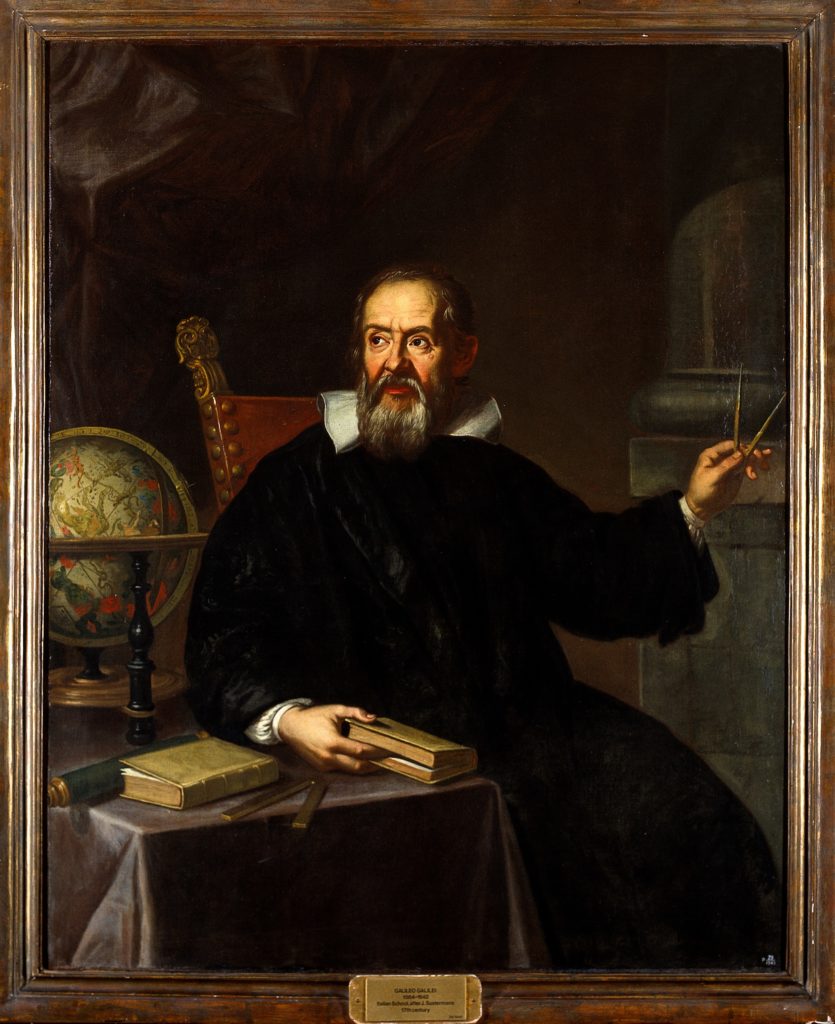Galileo Galilei (1564 – 1642) was famously placed on house arrest by the Catholic church inquisition for his astronomical discoveries that disagreed with the accepted church dogma of the time. It would prove to be a defining moment in scientific history as the old superstitious religious cosmology was being overthrown and humanity was thrust into the modern scientific era.

Philosophy [nature] is written in that great book which ever is before our eyes — I mean the universe — but we cannot understand it if we do not first learn the language and grasp the symbols in which it is written. The book is written in mathematical language, and the symbols are triangles, circles and other geometrical figures, without whose help it is impossible to comprehend a single word of it; without which one wanders in vain through a dark labyrinth. – Galileo Galilei
Ironically as a boy Galileo was tempted by the monastic lifestyle but was persuaded by his father to study medicine at the University of Pisa, where he later became a professor of mathematics. Throughout his life he experimented with the physics of objects and devoted himself to the study of astronomy, all the while making revolutionary discoveries. He demonstrated experimentally that objects of any mass will all fall to the ground (or accelerate) at the same rate and that projectile objects fly through the air in a parabola. He experimented with pendulums and showed that the time of the swing is always the same regardless of the length of the arc, which turned out to be due to the conservation of kinetic energy in the pendulum.
His most important discoveries turned out to be astronomical. After improving the magnification by about 10 fold on a spyglass originally made by Dutch lensmaker Hans Lippershey, Galileo turned his attention to the sky and made his revolutionary discoveries. He saw sunspots on the sun, craters and valleys on the moon, noticed four moons revolving around Jupiter, observed additional stars in the night sky, and observed the phases of Venus from which he deduced that the planet revolved around the Sun. These discoveries and observations forever changed our view of astronomy and ushered in a the modern scientific age of astronomy.